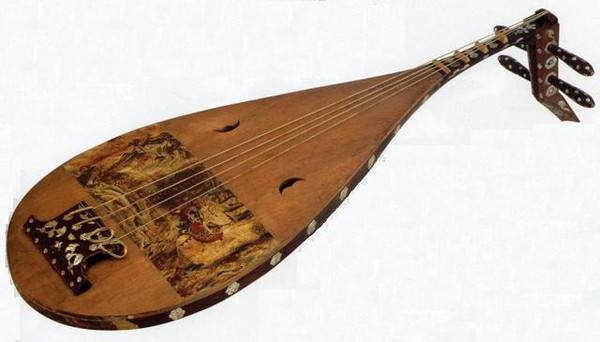Introduction to Pipa School - Pu Loh School
The Pu Yue School was passed down from Ju Shilin, and it was passed down from the teachers of Ju Shilin, Ju Maotang, Chen Zijing, Ni Qingquan, and Shen Hao Elementary.

Ju Shilin was a native of Huinan, Nanhui County, during the reign of Emperor Qianlong and Jiaqing in the Qing Dynasty. The date of birth and death is unknown.
It is said that Ju once took a boat to Hushu Pass in Suzhou. Since the city gate was closed at night, Ju Sui played the pipa for entertainment. The officers and soldiers guarding the gate were moved by the sound of the violin, and they were happy and released the switch. Therefore, there is a beauty of "playing to open the Hushu Pass". pass. Ju Shilin has left a hand-written pipa score of "Xianxuyouyin", which was published by the People's Music Publishing House in 1983 under the title "Ju Shilin's pipa score".
Ju Shilin's disciples include Ju Maotang, Chen Zijing, Cheng Chuntang, etc. According to the "Nansha Magazine": "At that time, there were people who were good at playing the pipa in my town: one was Mr. Chen, and the other was Chen Zijing. Zijing often travels and eats away, recalling Guangxu Dinghai (1887). When I arrived at the Wang's house outside the east gate of Shanghai, Shi Zijing was seated, and he saw the bronze armor on his fingers and played "The Overlord Unloads the Armor". The gong and drum technique began in Chen, and Chen's disciple Cao Jinglou was the best at this technique. The pipa used by another disciple of Chen Ni Qingquan is larger and longer than usual. It is called a big set of pipa, which can highlight the momentum of martial arts.
Chen Haochu, a further disciple of Chen, made important contributions to the development of the Pudong School, cultivated a large number of pipa performers, and compiled and published Yangzhengxuan Pipa Score.
The characteristics of the Pudong School Pipa are: the martial art is majestic, it is good at using the big Pipa, the bow is full and powerful, and the Wenqu is quiet and delicate. Its distinctive traditional techniques include: pinch roll, long pinch roll, various clips and sweeps, big splits, flying, double flying, rolling four strings, changing the number of strings, merging four strings, three strings and two strings, sweeping, and eight. Wind nodding, a variety of chants, timbre changes, gongs and drums, etc.
 渝公网安备 50010702504639号
渝公网安备 50010702504639号